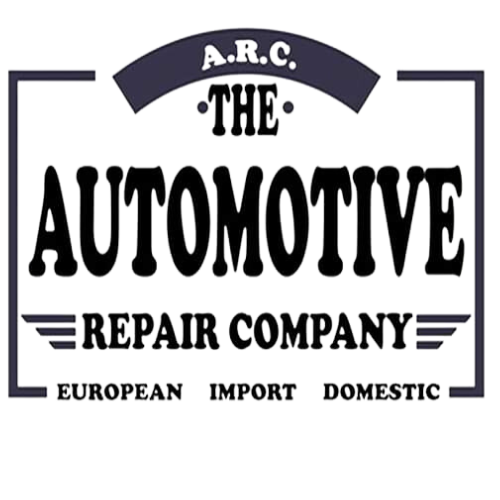
Vehicle ownership can seem like an intimidating prospect for many. The potential for dealing with expensive repairs and the stress of daily upkeep can be daunting. However, these 7 simple habits can make owning a vehicle a much more pleasant experience. From preventative maintenance to keeping up with the little things, these tips are sure to help keep your vehicle running optimally while also reducing stress and avoiding costly repair bills. Read on to discover how you can make vehicle ownership a smooth and stress-free process.
Habit 1: Maintenance Schedule
A vehicle maintenance schedule is an essential component of responsible car ownership. Regular upkeep helps ensure that your car runs smoothly and efficiently, minimizing the likelihood of breakdowns and costly repairs. Without a maintenance schedule, you’re simply guessing when it comes to servicing your vehicle.
To create a maintenance schedule, start by consulting your car’s owner’s manual. This document will provide specific guidelines on when to perform routine tasks such as oil changes, brake inspections, and tire rotations. Be sure to note any additional requirements based on your driving habits or environmental conditions.
Stick to your recommended maintenance schedule as closely as possible. Skipping or delaying necessary services could result in damage to your vehicle or even compromise its safety. Keep detailed records of all work performed on the car, including dates and mileage readings. This information will be useful for tracking progress over time and may come in handy if you decide to sell the vehicle in the future.
Habit 2: Budget Planning
Vehicle use budget planning is a crucial aspect of maintaining a healthy financial plan for businesses and individuals alike. Proper budget planning ensures that there are no hidden expenses or unexpected costs that can cause unnecessary financial strain. Setting up a budget plan for vehicle use, whether it is for personal or professional purposes, is necessary to ensure you don’t go overboard with your spending.
One way to start budget planning for vehicle usage is by understanding the cost of owning and operating a vehicle. This includes regular maintenance, fuel expenses, insurance premiums, registration costs, and taxes. Once you have an idea of these costs, it’s important to set aside funds accordingly each month to cover them. Additionally, tracking your actual expenditures versus the allocated amount will help you identify areas where you’re overspending so that adjustments can be made.
Another useful strategy in budget planning for vehicle use is carpooling or ridesharing arrangements.
Habit 3: Regular Cleaning
Keeping your vehicle clean is an essential part of vehicle maintenance. Regular vehicle cleaning helps to maintain the appearance and longevity of your car, truck, or SUV. It does not only make your vehicle look better but also keeps it hygienic and free from dirt, grime, and dust that can cause corrosion.
A clean vehicle is not just aesthetically pleasing; it also protects the resale value of your car. A well-maintained car can fetch a higher price when you decide to sell or trade it in for a new one. By keeping up with regular cleaning tasks such as washing, waxing, and vacuuming, you are ensuring that your investment performs well over time.
Regular interior cleaning also protects the interior of your car from damage caused by dirt particles and other debris that can clog cabin air filters and scratch surfaces.
Habit 4: Emergency Preparedness
A vehicle emergency kit is a must-have for every driver. It’s not uncommon to experience car problems when you least expect it, and being prepared can make all the difference in an emergency situation.
One of the most important components of a vehicle emergency kit is a first-aid kit. Accidents can happen at any time, and having basic medical supplies on hand can help prevent injuries from becoming worse. Your first-aid kit should include items such as bandages, gauze pads, antiseptic wipes and ointment, pain relievers, scissors and tweezers.
Another essential item for your vehicle emergency kit is a flashlight with extra batteries. If you find yourself stranded at night or in low-light conditions, having a reliable source of light can be critical for safety reasons.
Habit 5: Tax Record Keeping
Vehicle tax record keeping is an essential part of maintaining the financial records for any business that uses vehicles. Proper record-keeping ensures compliance with tax laws and regulations, which can help avoid fines and penalties. It is also important for businesses to keep accurate vehicle tax records to minimize their tax liability.
There are several items that must be included in vehicle tax records, including the purchase price of each vehicle, depreciation schedules, and expenses associated with maintenance and repairs. Businesses should also keep track of any fuel costs or insurance premiums related to their vehicles. This information can be used to calculate the total cost of owning a vehicle over time.
Properly organizing and storing vehicle tax records is crucial for easy access when required by government authorities during audits or investigations. Some businesses choose to maintain these records electronically for ease of access, while others prefer hard copies in physical files.
Habit 6: Insurance Updating
Vehicle insurance is a vital aspect of owning and operating a vehicle. However, it is not enough to simply purchase insurance and forget about it. Regular updating of your vehicle insurance policy is required to ensure that you have adequate coverage.
One reason for updating your vehicle insurance policy is changes in circumstances. This includes moving to a new location, adding or removing drivers from the policy, or upgrading car components. Failing to update your policy in such situations can leave you with gaps in coverage when you need it most. You might even find yourself in a situation where insurance doesn’t cover you because of not updating your policy.
Another reason for updating your vehicle insurance policy is changes in the law. Laws governing vehicle insurance vary by province and are subject to change. It is crucial that you stay up-to-date on any changes that may affect your coverage requirements so that you remain compliant with the law while also protecting yourself financially.
Habit 7: Vehicle Improvement Projects
Vehicle owners understand the importance of maintaining their cars and trucks. However, sometimes, routine maintenance may not be enough to keep your vehicle running smoothly. It’s important to consider vehicle improvement projects that can help increase the lifespan of your car while providing a better driving experience.
One popular vehicle improvement project is upgrading your suspension system. A well-functioning suspension system ensures a smoother ride by absorbing shock and vibrations from uneven roads. Upgrading your shocks, struts or springs will also improve handling and stability on the road. Another way to improve your vehicle’s performance is by installing a cold air intake system which increases airflow into the engine resulting in better fuel efficiency and more power.
Another popular project is adding new tires or wheels, which can affect both performance and aesthetics of a vehicle- improving its handling, speed and overall look significantly.
Enjoy the Benefits of Vehicle Ownership
In conclusion, vehicle ownership is a great way to increase freedom and convenience. It can make life easier by allowing for travel that would be impossible without the use of a car. Vehicle ownership also gives you access to more shopping options and greater job opportunities and allows for a more comfortable lifestyle overall.
